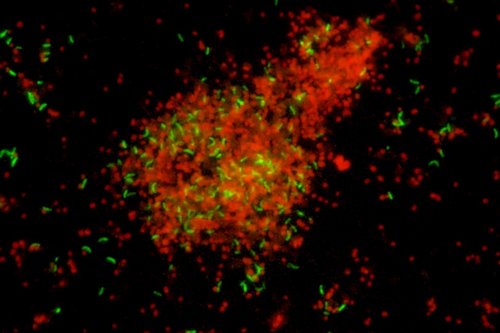

Our research group focuses on the physiology, biochemistry, and molecular biology of Archaea, microorganisms capable of metabolizing hydrocarbons in anoxic environments. These Archaea are abundant in extreme settings such as deep-sea marine sediments, hydrothermal vents, and cold seeps, where they play a critical role in global carbon and sulfur cycles. Through their metabolic processes, these organisms contribute significantly to the degradation and turnover of natural gas and crude oil hydrocarbons, which have been introduced into the biosphere over geological timescales through natural seepage, and more recently, through human activities related to fossil fuel extraction and use.
With global emission estimates suggesting that millions of tons of volatile alkanes (e.g., ethane, propane, and butane) are released into the atmosphere annually, understanding the mechanisms by which Archaea metabolize these hydrocarbons has become increasingly important. Our research aims to elucidate the pathways of hydrocarbon degradation in Archaea, their trophic and energetic interactions within microbial communities, and their broader impacts on biogeochemical processes. We investigate the functional and phylogenetic diversity, abundance, and in situ activity of these Archaea, providing insights into their ecological roles and contributions to environmental sustainability.
In addition, we are exploring the potential reversibility of oxidative pathways in these microorganisms, which could unlock next-generation biotechnologies for the sustainable production of synthetic fuels. Our ambition is to develop innovative green technologies that reduce carbon dioxide emissions, enable the conservation and storage of renewable energy, and contribute to a more sustainable energy future.

My research interest lies within microbial ecophysiology and single cell microbiology with emphasis on the study of microbial metabolic interactions in natural and synthetic environments. My aim is to understand the way microorganisms are pairing with each other structurally and metabolically and the underlying mechanisms that lead to the successful functioning of such partnerships. A dedicated part of my research involves methodological developments coupling the use of chemical imaging by mass spectrometry and spectroscopy, isotope tracers and high-resolution electron and light microscopy to study microbial metabolism and interactions with single cell resolution. Correlative analyzes for identification, quantification and chemical mapping of microbial cells, subcellular components and their metabolic products it is at the forefront of my current research.

My research interest lies within microbial ecophysiology and single cell microbiology with emphasis on the study of microbial metabolic interactions in natural and synthetic environments. My aim is to understand the way microorganisms are pairing with each other structurally and metabolically and the underlying mechanisms that lead to the successful functioning of such partnerships. A dedicated part of my research involves methodological developments coupling the use of chemical imaging by mass spectrometry and spectroscopy, isotope tracers and high-resolution electron and light microscopy to study microbial metabolism and interactions with single cell resolution. Correlative analyzes for identification, quantification and chemical mapping of microbial cells, subcellular components and their metabolic products it is at the forefront of my current research.